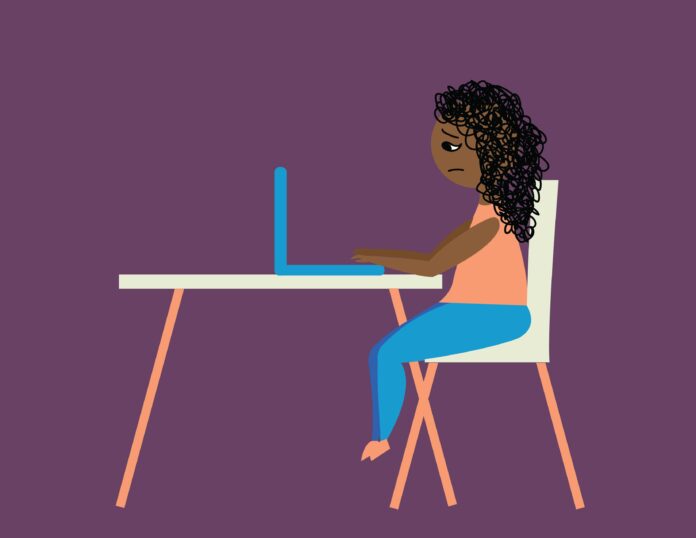Post-secondary students are facing the new experience of online learning as fall classes begin in the midst of the COVID-19 pandemic. Dr. Christine Purdon, UW Professor of Psychology and registered psychologist, answers some questions about how the shift to learning online could affect the mental health of students.
Q: How will the transition to remote learning affect the mental health of post-secondary students?
A: For some people, it might make things easier. It might reduce their mental health issues, so I think it depends on people’s situations. Overall, I think that if people are in a stressful environment at home, where there are a lot of people competing for computers, internet, and privacy, it can be stressful to try to focus and concentrate on your work when there’s lots of other things happening. I think that’s a big issue, not so much the online learning but the fact that people are required to participate in online learning from wherever they are.
Q: How will e-learning affect learning and retention?
A: It depends on if you’re in an environment where there’s all kinds of stuff going on. If you have family members who are fighting, or if you’re easily distracted, all kinds of things might make learning harder. If you’ve got social media on and such it can be so much easier to get distracted, so I think there’s something about coming to a class physically and just carving out that space and time in your day. I think it’s harder for some people for sure.
Q: Are there positive benefits to remote learning?
A: There are positive benefits in the sense that some people with anxiety issues, for example, may find that their anxiety is alleviated. You don’t have to be out and about in public as much and you can turn your mic and video off, so there are lots of ways you can kind of hide a little bit. People with panic disorders may also find that they don’t have to be out and about. People with OCD may have more control over their environment. The problem for those people might arise when there is a return to classes. We’re certainly noticing in our Centre for Mental Health Research that with students going back to school, we have a lot more referrals than we had when they were at home. There could be a lot of reasons for that, but a lot of students were fine during the pandemic. Now that they have to go back, things are getting really hard for them again.
Q: Is staying at home during the pandemic healthy for people with mental health disorders?
A: I don’t know if it’s healthier because I always think with an anxiety problem, what you actually need is more exposure to the situations that make you anxious, so you can learn what to do about them. I think that it could be a reprieve for people so they’re not feeling as much anxiety, but I worry that once they step out again it’s just going to come back more. For people who suffer with mood disorders, like depression, the isolation of being at home could make it worse. For people who live on their own, just not having any social contact in person could really start to exacerbate the depression.
Q: How can those issues be addressed?
A: I think one thing that’s really important is to connect. I know that needs to happen a lot remotely since we’re seeing a lot of COVID-19 infections in the area. One thing that research suggests is social media. It’s not about the time you spend on social media, but the nature of your contact, so sitting and scrolling will likely affect your mood. But if you can find ways of connecting on social media and engaging with your family and friends in a positive way, that’s a way to mitigate that.
Q: Do you have any further advice for maintaining mental health during online learning?
A: I do think it’s really important to carve out time in a day to get outside, read a book, or listen to some music to stay offline. Try to find something different, you know, get out into nature. I also think structure is really important. When you’re doing asynchronous learning, it’s up to you to schedule things. I think that if you don’t structure your time, it will catch up with you very quickly, and it’ll sort of lead to this aimlessness, and then you get overwhelmed, and it’s really hard to get engaged again. So even though your days aren’t really structured for you the way they were when you had lectures and such, that’s really one thing that you can do to help yourself.






























